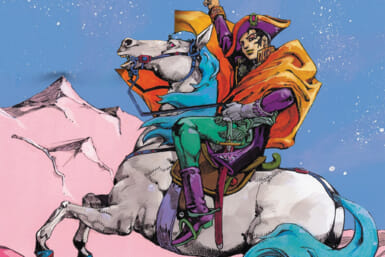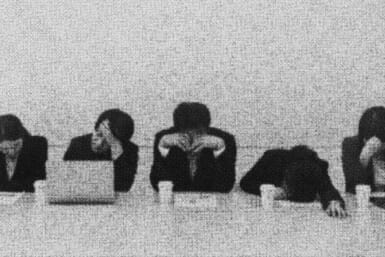Seated amongst the celebrities, dignitaries and onlookers at the 91st Academy Awards ceremony on February 24 will be Japanese director Hirokazu Kore-eda, who hopes his independent tour de force Shoplifters will be just the fifth Japanese film to win the Oscar for best foreign language film, and the first since Yojiro Takita’s Departures earned the distinction a decade ago.
Joining Kore-eda among this year’s hopefuls is Mamoru Hosod, whose whimsical animated film, Mirai, is nominated in the best animated feature film category.
Before the red carpet rolls out, learn more about these two Japanese films that have caused the critics’ tongues to wag and made theatre-goers intrigued.
Shoplifters
Winner of the Palme d’Or at the Cannes Film Festival, Shoplifters (Manbiki Kazoku in Japanese) is Kore-eda’s most recent exploration of the emotional bonds that tie a family together. Through quietness, gentleness and humorous moments, Kore-eda aims straight for the hearts of the viewers, who are sure to fall in love with the characters, and question the accepted notions of the family unit.

Ando Sakura, Sasaki Miyu, Jyo Kairi, Lily Franky, Matsuoka Mayu and Kiki Kirin in SHOPLIFTERS, a Magnolia Pictures release. Photo courtesy of Magnolia Pictures.
The story follows the members of a chosen family living in the outskirts of Tokyo. Their lives are turned upside down when the youngest of the group is arrested for shoplifting, which we learn is a common practice among the clan and essential to their survival. Dark secrets are revealed, and the love that holds them together is put to the test. The Guardian describes it as a “complexe, subtle and mysterious film that builds to the most extraordinary surprise ending, a twist-reveal worthy of psychological suspense noir.”
Using his medium to address Japanese society’s contemporary issues, in Shoplifters, Kore-eda reveals to the viewer the unfortunate reality of living in poverty in the country, and when the only light of hope of a better life relies in stealing from others. Raw and emotional, the film denounces Japan’s hypocrisy and the marginalizing tendencies.
Mirai
Since the debut of the Animated Feature Film category back in 2001, the Japanese films that made the Oscar cut were exclusively Studio Ghibli productions, with the majority directed by Hayao Miyazaki. In 2017, Japanese animation fans around the globe were bewildered when Makoto Shinkai’s Your Name didn’t make the cut, despite having been an international phenomenon at the time. This year though, a fantastic animation film slipped through, and that is Mirai.

(C)2018 スタジオ地図
Directed by Mamoru Hosoda, the mind behind Wolf Children, this film is a wholesome coming-of-age story. The story follows the adventures of Kun-chan, a four-year-old boy who develops “sibling envy” after the birth of his baby sister, Mirai. It is only through a chain of fantasy sequences, blurring the lines between reality and a child’s imagination, that he will come to terms with the inevitable future of being an older brother.
Roger Ebert compares the film to Disney Pixar’s Inside Out in how both stories “re-imagine the inner lives of children through the lens of an individual child’s innermost thoughts” and “emotional turmoil.” Adults might find themselves having a hard time connecting with the main character; they might be even frustrated with him at every other of this tantrums. But this realistic and rounded portrayal of a child, in all its yelling and crying, shows how much we, the viewer, have grown since our toddler years and reminds us that there was a time when we too were incorrigible.
Watch a live screening of the 91st Academy Awards from 9am on February 25 at Good Heavens Bar in Shimokitazawa.









